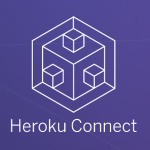About Google My Business
The Google My Business API allows you to manage your business locations on Google so that your customers can always find you, no matter what device they’re using.
About Heroku Connect
Heroku Connect is a data integration tool that uses bi-directional synchronization between Salesforce and Heroku Postgres to harmonize Postgres data your Salesforce information like contacts, accounts, and custom objects. Heroku connect includes a user-friendly, point-and-click interface so non-tech-savvy users can set up the service in minutes without coding or complicated configuration procedures.
Popular Use Cases
Bring all your Google My Business data to Amazon Redshift
Load your Google My Business data to Google BigQuery
ETL all your Google My Business data to Snowflake
Move your Google My Business data to MySQL
Bring all your Heroku Connect data to Amazon Redshift
Load your Heroku Connect data to Google BigQuery
ETL all your Heroku Connect data to Snowflake
Move your Heroku Connect data to MySQL
Google My Business's End Points
Google My Business Admins
You can add admins to accounts or locations using just their Google account. That way, they can easily help manage your business.
Google My Business Accounts
In your Google accounts collection, you can list your account data, create an account, and update your accounts. This allows you to have full control over your business from one location.
Google My Business Locations
Use the API to create and edit locations. Once they’re verified, these will help attract new customers and make your local business more visible over time.
Google My Business Attributes
Create metadata for an attribute. This contains display information for the attribute, including a localized name and a heading for grouping related attributes together.
Google My Business Categories
A category allows you to describe what a business is. This will help you organize your Google My Business data over time.
Heroku Connect's End Points
Heroku Connect Synchronization of Apps Across Heroku and Salesforce
Heroku Connect allows you to build apps with open source stacks, natively integrate the apps with Postgres, and directly sync them with Salesforce. By integrating your Salesforce data with Heroku Postgres, it's easy to combine the power of the Lightning Platform with Heroku. Heroku Connect makes the process of building apps that bring your data and processes to your users as easy as coding in SQL.
Heroku Connect External Objects
Heroku Connect External Objects let you make your Heroku Postgres database information available inside your Salesforce deployment. This empowers you to synchronize your information across both platforms as you create, read, update, and delete data. By creating sophisticated applications inside Heroku and making the app data available to your Salesforce processes, you'll present a seamless experience in Salesforce, while all of your data stays inside Heroku Postgres. Moreover, configuring Heroku-Salesforce integrations for data pertaining to apps, sensors, customers, and products is a simple, point-and-click process that doesn't require any coding skills. Heroku External Objects combined with Salesforce Connect makes it easy to create a seamless experience across all of your business systems.
Heroku Connect Data Security Compliance
Heroku Shield Connect supports the development of applications that share sensitive data with Salesforce while complying with the strictest data security standards. Safely integrate CRM data, Protected Health Information (PHI), Personally Identifiable Information (PII), contact information, account data, and custom objects between Heroku apps and Salesforce. Heroku Shield Connect provides an easy pathway for building advanced applications that need to adhere to the most complicated data security regulations, including HIPAA compliance.
Heroku Connect Easy Application Development and Scaling
Through its compatibility with the most popular stacks and programming languages, Heroku Connect facilitates easy application development. Its add-on ecosystem includes your favorite development tools and databases (like New Relic, Mongo, and Redis) so you can use them with the applications you're creating. Through Heroku's proven infrastructure, which currently supports 26 billion daily transactions for massive consumer websites (such as Upworthy and Bonobo) virtually limitless scaling is available for high volume applications.








